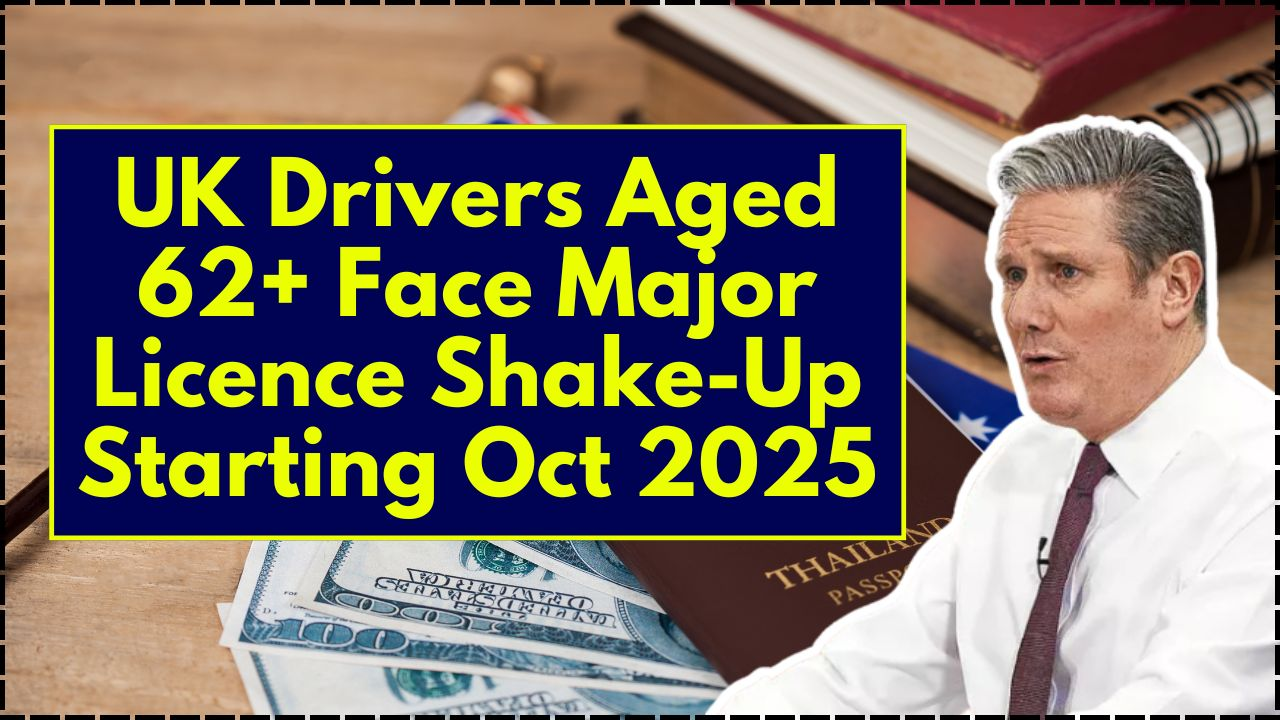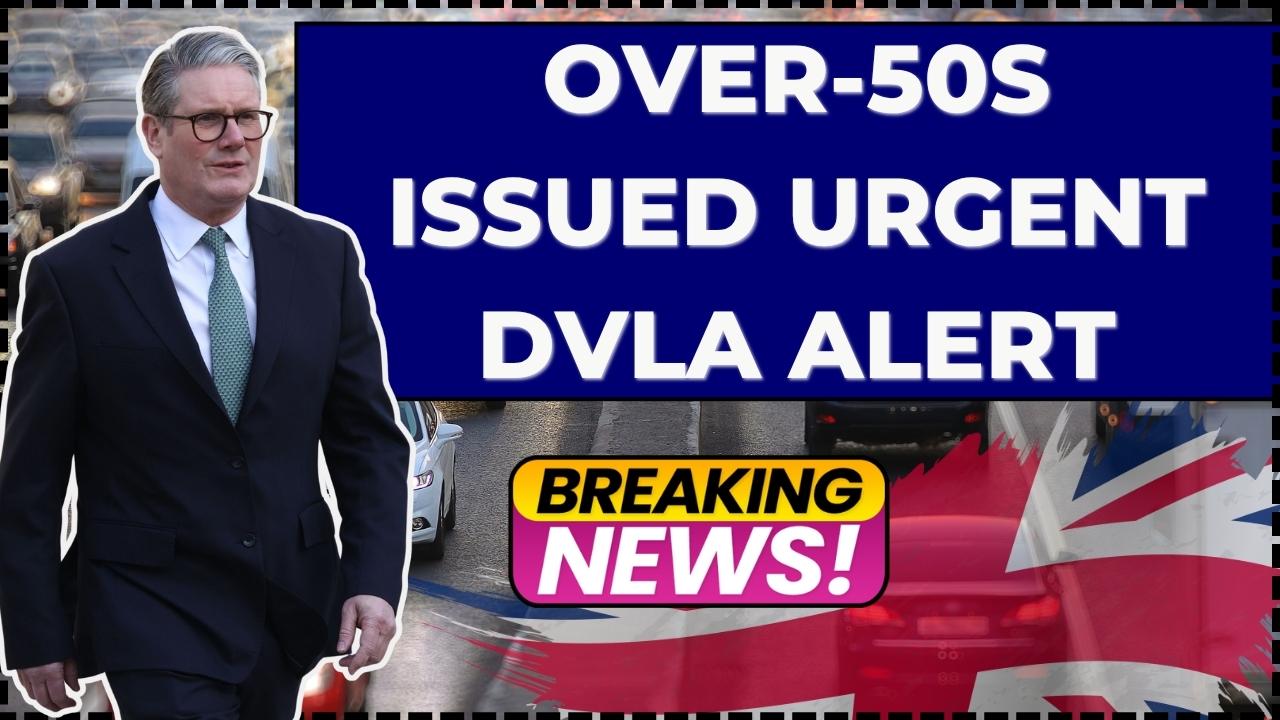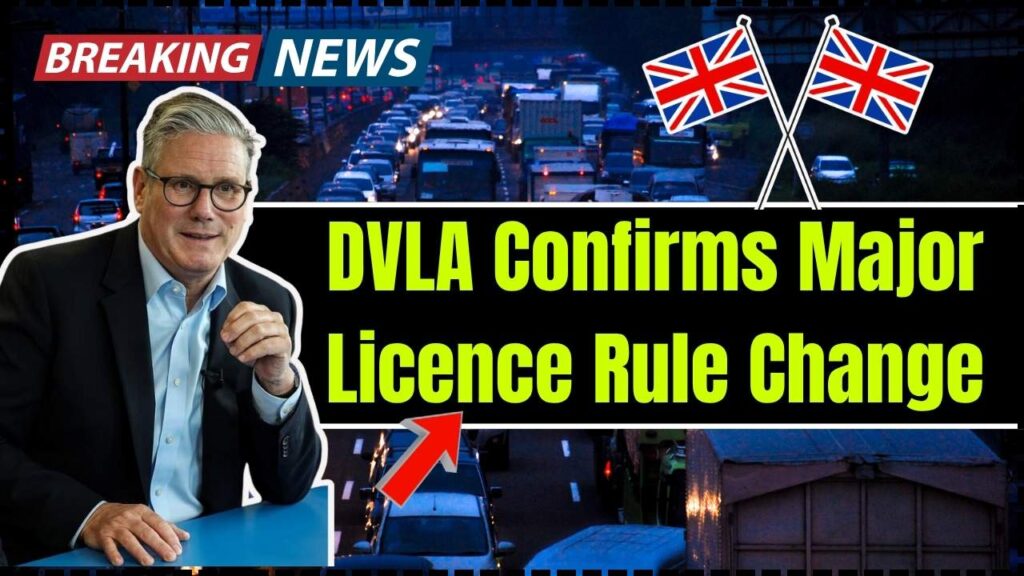
DVLA Confirms Major Licence Rule Change: this headline has spread like wildfire across news feeds and Facebook groups. Many drivers, especially those approaching retirement age, are asking the same question: Is this real, and how will it affect me? Here’s the truth, straight from reliable sources and official government data. There’s a lot of confusion out there, so let’s cut through the noise. The Driver and Vehicle Licensing Agency (DVLA) has not confirmed any new rule change for drivers aged 57 and over. The confirmed age threshold for renewal still stands at 70 years old, with renewals required every three years thereafter.
But that doesn’t mean the landscape isn’t shifting. Government consultations, public concern, and ongoing debates about older-driver safety are putting new rules on the horizon — potentially affecting millions of motorists in the years ahead. This guide breaks down everything you need to know — including facts, data, renewal steps, possible reforms, and expert advice — all in plain, relatable language.
Table of Contents
DVLA Confirms Major Licence Rule Change
So, let’s clear it up once and for all:
- The DVLA has not confirmed any rule change for 57+ drivers.
- The official renewal age remains 70.
- After 70, renew your licence every three years, declare your health honestly, and ensure your vision meets the standard.
- Future reforms may include medical certificates, vision testing, or shorter renewal cycles for older drivers, but nothing is confirmed as law yet.
- Staying informed, healthy, and transparent with the DVLA ensures you remain a safe, confident driver for years to come.
| Topic | What You Should Know | Official Source |
|---|---|---|
| Current Renewal Age | Must renew at 70 years old, then every 3 years | GOV.UK – Renew at 70 |
| Renewal Cost | Free for 70+ drivers online | DVLA Blog |
| Health & Vision Requirements | Must self-declare fitness and eyesight; future proposals suggest more tests | |
| False Claim: Age 57 | No evidence of a DVLA-confirmed rule for 57+ drivers | |
| Next Steps | Keep health records, follow GOV.UK updates, and avoid unofficial “renewal” websites |
Understanding the Current Law
Driving in the UK has no upper age limit. That means there’s no automatic age when you must stop driving — as long as you’re medically fit and meet eyesight standards, you can keep driving well into your 70s, 80s, and beyond. However, by law, once you reach the age of 70, your licence expires and must be renewed every three years. This process is designed to ensure older drivers remain safe, capable, and medically fit for the road. Renewing your licence is free if you do it through the official GOV.UK website. Don’t fall for third-party services that charge fees — they often mimic the official site but add unnecessary costs.
The renewal process involves a self-declaration form. You’ll confirm that your health and eyesight meet DVLA standards, and that you don’t have any conditions (like diabetes, epilepsy, or heart issues) that affect your driving ability. If you do have a notifiable medical condition, you must tell the DVLA — failure to do so could result in fines or even prosecution if you’re involved in an accident.
The Facts: What the DVLA Requires
- No maximum driving age. You can legally drive as long as you’re fit to do so.
- Renewal starts at 70. You’ll get a reminder about 90 days before your 70th birthday.
- Renew every 3 years. After that, you must continue to renew triennially.
- Self-declare health. You’ll be asked about your medical and eyesight conditions.
- Vision standard: You must be able to read a number plate from 20 meters (with glasses or contacts if needed).
- Medical evidence: DVLA may request medical reports from your GP or optician if needed.
According to DVLA figures, over 5.7 million UK licence holders are now aged 70 or older — a record high. With people living longer and staying active later in life, this group represents nearly one in six drivers on British roads.
This surge in senior drivers is one of the key reasons discussions about policy reform have intensified in recent years.
The Rumor About DVLA Confirms Major Licence Rule Change
So, where did this “drivers aged 57+” claim come from?
A mix of misinformation, media exaggeration, and misunderstood policy proposals. Several online outlets have reported that “new rules” would soon force drivers over 57 to renew or take extra tests. However, no such rule appears in DVLA publications, official consultations, or parliamentary releases.
In truth, the current legal threshold remains 70 years old. Anything earlier than that is speculation.
The confusion likely stems from draft discussions suggesting that medical and eyesight checks could eventually be extended to drivers in their 60s as a preventive measure. These proposals, however, are not law — they’re part of broader policy conversations about how to keep roads safe as Britain’s population ages.
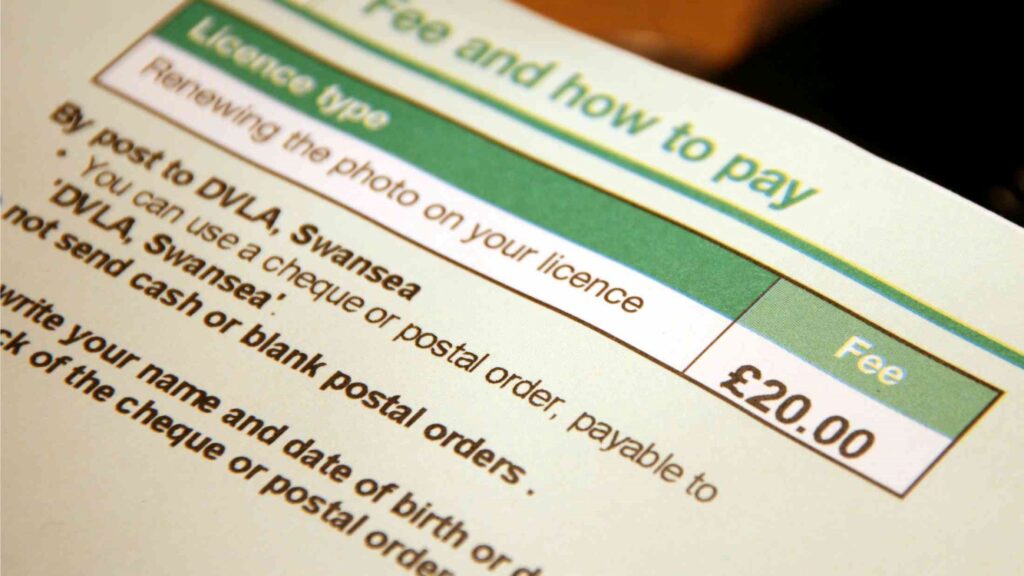
Proposed Reforms As DVLA Confirms Major Licence Rule Change
Let’s look at what might be coming — and when.
1. Medical Certification
Under current proposals being studied by policymakers, drivers over 70 could be required to provide a doctor-signed certificate confirming they’re medically fit to drive. This would replace today’s self-declaration system.
While the idea aims to prevent accidents, critics argue it could strain GP services and unfairly burden healthy older drivers.
2. Mandatory Vision Tests
Vision is a critical factor in road safety. Studies by the College of Optometrists found that nearly 9% of UK drivers fail to meet the minimum eyesight requirement, often without realizing it. Policymakers are exploring whether periodic vision tests — perhaps every 5 years after age 65 — should become mandatory.
3. Random Health Screenings
A future DVLA proposal may involve randomized medical screenings for older licence holders, much like random drug testing in other professions. These checks could flag undiagnosed issues such as memory decline, poor reflexes, or vision loss.
4. Conditional or Restricted Licences
If an older driver has mild medical limitations, future systems could allow restricted licences — permitting daytime driving only or banning motorway travel. Similar models already exist in parts of Australia and Canada.
5. More Frequent Renewals
Another idea under discussion is shortening the renewal cycle from three years to two years for drivers over 80. This could ensure regular contact between drivers and healthcare providers.
Why the Government Is Considering Changes?
The main motivation is road safety. According to the UK Department for Transport, drivers aged over 70 are statistically more likely to be involved in accidents caused by medical or vision-related issues, though they also tend to drive fewer miles. The challenge is striking a balance: keeping experienced drivers safely on the road while protecting the public from potential risk.
A 2024 coroner’s inquest in England concluded that the UK’s current self-declaration model is “ineffective and unsafe”, after an elderly driver with undiagnosed vision loss caused a fatal crash. That report triggered renewed calls for stricter checks. Still, experts stress that age alone isn’t the problem — health and awareness are. Many older drivers actually have better records than younger ones, especially regarding reckless driving and speeding.
Practical Steps for Drivers Aged 57 and Older
Even if you’re not directly affected by rule changes yet, it’s smart to prepare now.
Here’s a simple checklist:
1. Keep your health in check.
Schedule regular GP and optician visits. Early detection of medical or vision issues can prevent surprises when renewal time comes.
2. Update your medical records.
Keep documents in a folder or digital file. If new rules require proof later, you’ll be ready.
3. Drive smart.
Stick to familiar routes, avoid driving when tired, and consider a defensive-driving refresher course.
4. Stay informed.
Bookmark official sources like gov.uk and olderdrivers.org.uk.
5. Avoid scams.
Fake DVLA websites and third-party services often charge for “helping” with renewals. The DVLA never asks for extra payments by text or email.
6. Talk to family.
Discuss your plans and medical status. Sometimes, an honest chat helps you spot risks before they become problems.
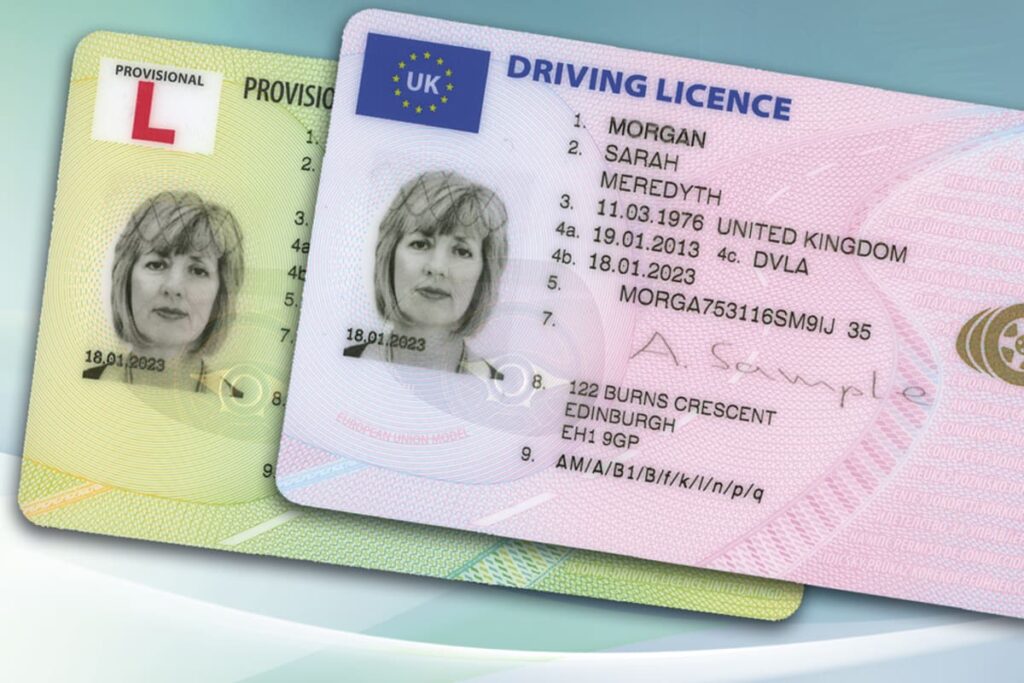
What Happens If You Don’t Renew?
Failing to renew your licence at 70 means you’re driving illegally. That could result in:
- Invalid insurance coverage
- Fines or legal prosecution
- Vehicle impoundment
- Permanent loss of licence privileges
If you apply for renewal on time, you can keep driving while your application is processed, as long as your previous licence was valid and your doctor hasn’t advised otherwise.
UK £200 Cost of Living Payment in 2025 – Check Payment Date, Eligibility, and Status Here
New DVLA Law Hits Over-62s from October 9: What Every Older UK Driver Must Know Now
DWP WASPI £2,950 Compensation News – Only these will get it in October 2025
The Emotional and Practical Side of Driving in Later Life
For many, the thought of losing a licence isn’t just about transport — it’s about independence. Driving lets people stay connected, see family, and live freely. That’s why proposed reforms often meet resistance: they touch on pride and self-reliance.
Families play a key role here. It’s often easier to approach these topics early — perhaps by scheduling a shared GP visit or exploring backup transport options.
Community programs, volunteer driving schemes, and discounted ride services can also bridge the gap if someone eventually decides to hang up the keys.
Remember: safe driving isn’t about age. It’s about honesty, awareness, and preparation.
How the UK Compares Globally?
To put things in perspective:
- Australia requires annual medical checks for drivers over 75 in some states.
- Canada mandates renewal every two years after 80, often with vision or cognitive testing.
- Japan requires cognitive assessments for drivers over 75.
- UK remains among the most flexible countries, relying on trust and self-reporting.
These comparisons show that reform is likely in the UK’s future — but it’s expected to roll out gradually and with public consultation.



